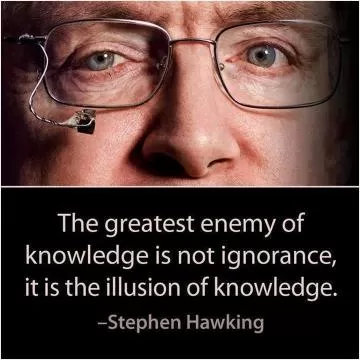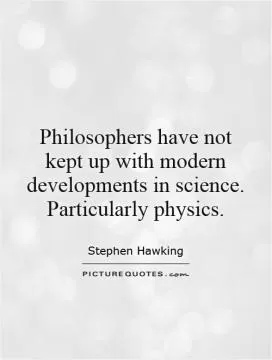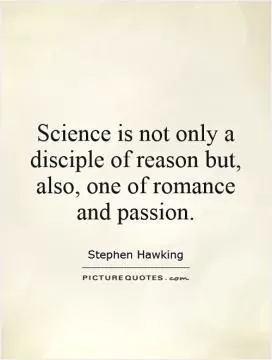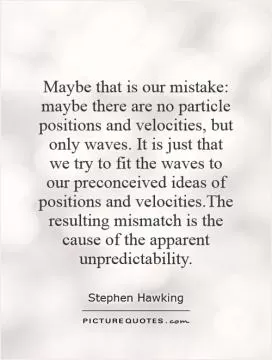God not only plays dice, He also sometimes throws the dice where they cannot be seen

God not only plays dice, He also sometimes throws the dice where they cannot be seen
The quote "God not only plays dice, He also sometimes throws the dice where they cannot be seen" is often attributed to renowned physicist Stephen Hawking. This statement reflects Hawking's belief in the unpredictability and randomness of the universe, as well as his acknowledgment of the limitations of human understanding when it comes to the mysteries of the cosmos.Hawking was a firm believer in the idea that the universe operates according to the laws of physics, which are inherently probabilistic in nature. In other words, there is an element of chance and uncertainty in the way that events unfold in the universe. This concept is often illustrated by the analogy of a dice game, where the outcome is determined by a combination of factors that are beyond our control.
However, Hawking also recognized that there are aspects of the universe that are beyond our current understanding or observation. Just as a dice thrower may conceal their actions or manipulate the dice in a way that is not immediately apparent, there may be hidden forces at work in the universe that are beyond our ability to perceive or comprehend.
This idea of hidden or unseen forces in the universe ties into Hawking's exploration of concepts such as black holes, quantum mechanics, and the nature of time. These are areas of physics that push the boundaries of our current knowledge and challenge our conventional understanding of the universe. In these realms, the rules of the game may be different, and the outcomes may be influenced by factors that are not readily apparent.
Overall, the quote "God not only plays dice, He also sometimes throws the dice where they cannot be seen" encapsulates Hawking's perspective on the universe as a complex and mysterious entity that is governed by both known and unknown forces. It serves as a reminder of the humility and curiosity that are essential for scientific inquiry and a deeper understanding of the world around us.












 Friendship Quotes
Friendship Quotes Love Quotes
Love Quotes Life Quotes
Life Quotes Funny Quotes
Funny Quotes Motivational Quotes
Motivational Quotes Inspirational Quotes
Inspirational Quotes